We want your experience at Triangle Surgery Center to go as smoothly as possible. Once you are on the surgery schedule, you will receive specific instructions on how to prepare for the procedure, when to arrive, and what to bring with you on the day of surgery. We will also make sure that all of the paperwork is in order ahead of time, so you can relax and focus on healing.
Day of Procedure
- The Day Before Surgery
- Arriving at the Triangle Surgery Center
- What to Bring to Triangle Surgery Center
The day before your surgery, a TSC nurse will call to go over the surgery schedule and give you an arrival time and instructions. If a nurse has NOT contacted you by 4:00 pm, please call the surgery center at 919-596-8524.
You will be scheduled to arrive at TSC before your anticipated surgery time to allow adequate time for all necessary admission procedures. On rare occasions, the surgery schedule may run ahead or behind the scheduled times. We will do our best to keep you informed. Please be aware that due to the nature of procedures, all times are estimates.
Do not eat or drink anything after midnight the evening before your procedure. Children will receive special instructions.
On the day surgery is scheduled, limit the number of people accompanying you or visiting you to one. You will be discharged to the care of a responsible adult who can transport you home. That person should be prepared to remain at the surgery center for the duration of your procedure and recovery. Minors (patients under 18 years of age) must be accompanied by a parent or legal guardian at all times. The parent or legal guardian must stay at the facility at all times.
For your comfort when you leave TSC, wear loose-fitting clothing and cotton underwear. Take a tub bath or shower prior to arrival, but please do not use any lotions, creams, powders, cologne or make-up. Remove any piercings, and leave jewelry and other valuables at home; TSC is not responsible for lost or stolen items.
If you wear contact lenses, remove them and wear eyeglasses instead. If you rely on hearing aids, bring them to the surgery center as well.
When you are added to the surgery schedule, you may also have a pre-surgical anesthesia appointment. Bring the following to this appointment:
- EKG reports.
- Lab results.
- Pulmonary notes and tests.
- Cardiac notes and tests.
- Any other information provided by your primary physician’s office.
- List of allergies and sensitivities.
- Medication in its originally labeled bottle.
On the day of surgery, bring your medication (in the original bottles) as well as any of the following, when applicable:
- CPAP machine.
- Insulin pump, along with the manufacturer’s procedure and insulin regimen.
- Name and serial number of your pacemaker, located on your card.
What To Do After Your Procedure
Your first priority after having any surgery is recovery. In addition to receiving information about your recovery before the procedure, our surgeon will provide post-operative instructions regarding diet, activities and medications.
For your safety, we recommend arranging for a responsible individual to stay with you for 24 hours after your procedure to help ensure you adhere to the post-operative instructions. Also, avoid the following for at least 24 hours post-surgery:
- Signing important documents
- Making significant decisions
- Driving
- Smoking
- Consuming alcoholic beverages
Your surgeon will let you know when you can return to your normal activities.
At any time before or after your surgery, do not hesitate to ask questions. If you have any difficulty, notify your surgeon. It is normal to feel a little sleepy and/or dizzy for several hours after your operation. However, you should call TSC immediately in the unlikely event that you experience any of the following:
- A fever of 101 degrees or higher
- Increased pain or tenderness at the incision site
- Signs of infection including redness, swelling, bleeding, fluid at the incision site, and foul odor
- Nausea
- Problems using the bathroom
- Changes in circulation, such as the inability to feel your extremities or skin color changes
Your surgeon will also indicate any other signs or symptoms to watch for in your post-operative instructions.
Recovery in the Post Anesthesia Care Unit
After surgery, you will be transported from the operating room to the Post Anesthesia Care Unit (PACU). Here you will be monitored until you are ready for discharge. Although the time varies, patients are discharged from PACU when discharge criteria are met.
The Post Anesthesia Care Unit nurse determines whether you are ready for discharge based on factors including:
- Time—most patients stay in the PACU for 30-60 minutes
- Responsiveness
- Vital signs
- Pain control
- Bleeding control
- Absence of nausea and/or vomiting
- Mobility
- Procedure-specific criteria
Upon being cleared for discharge by a PACU nurse, a responsible adult will need to drive you home. Age is not the only criteria for determining who qualifies as a responsible adult. The person taking you home must be capable of following instructions provided by the Post Anesthesia Care Unit (PACU) and reporting any post-surgery or post-anesthesia complications.
Triangle Surgery Center, LLC
7921 ACC Boulevard Raleigh, NC 27617
Tel: 919-596-8524 Fax: 919-596-6640
Medicare Certified

